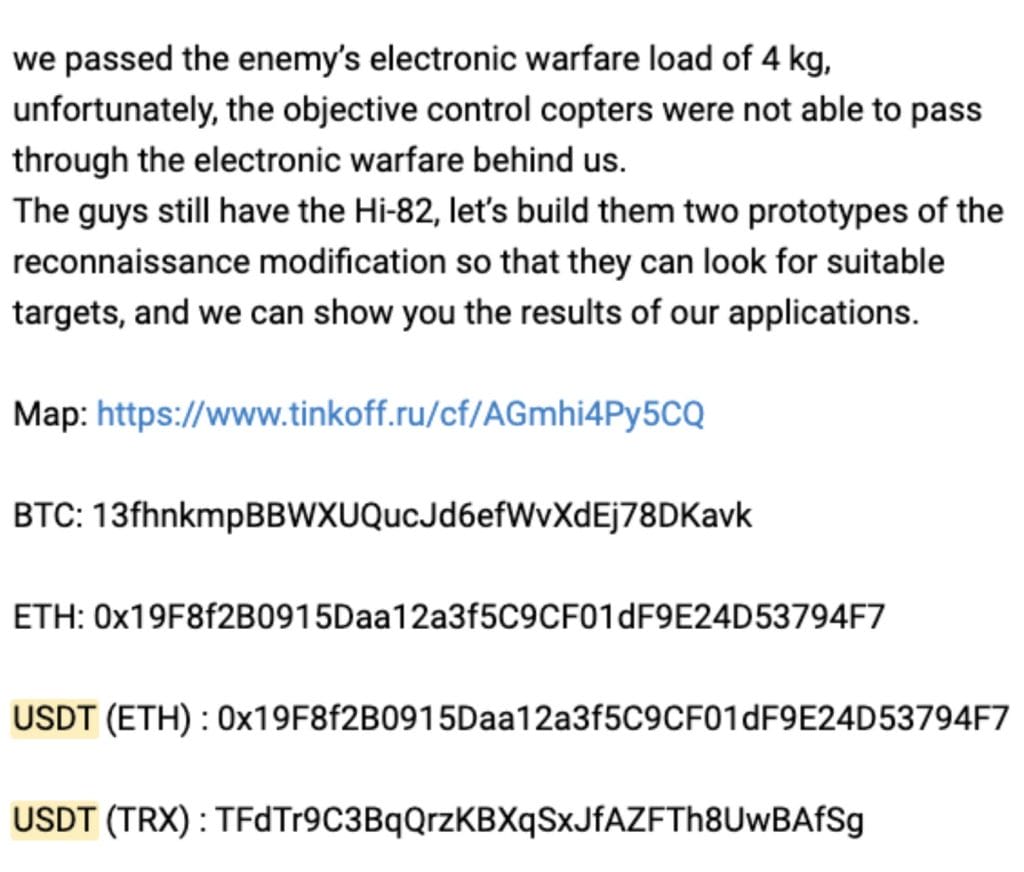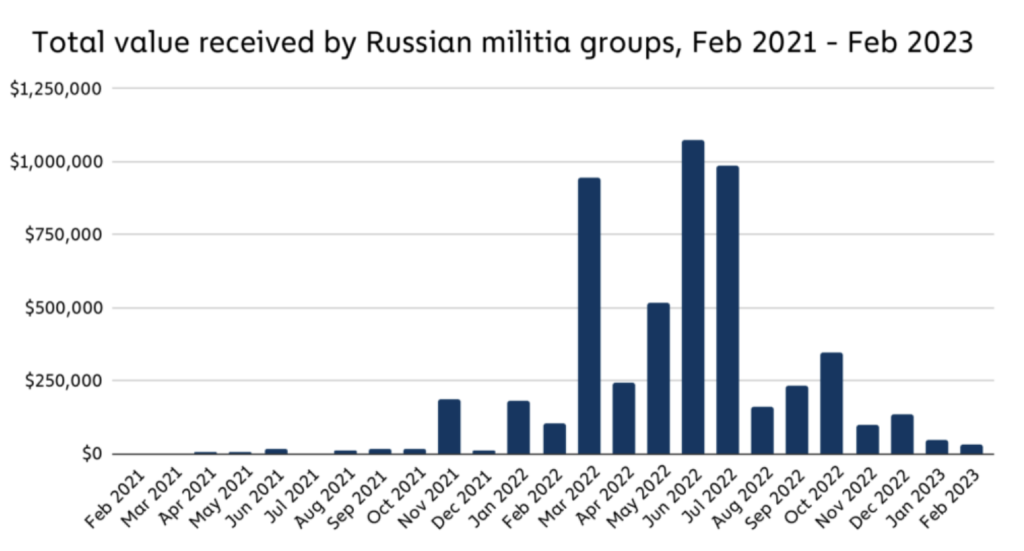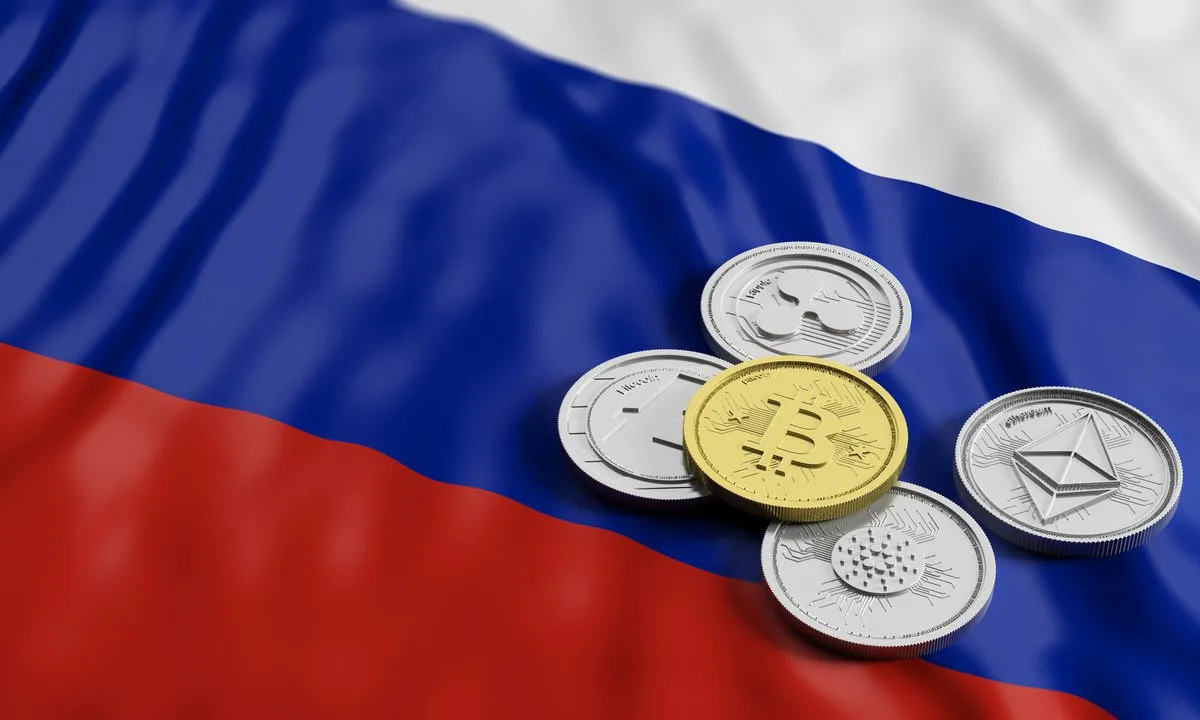On May 1st, the United States Treasury’s Office of Foreign Assets Control (OFAC) took decisive action against a developer affiliated with OKO Design Bureau, a prominent drone manufacturer based in Russia. The developer in question was sanctioned by OFAC, and three cryptocurrency addresses linked to the company were added to the Specially Designated Nationals (SDN) list.
This move by OFAC represents a significant escalation in efforts to counteract Russia’s activities in the ongoing conflict with Ukraine. The developer at OKO Design Bureau is just one of the 300 individuals and entities targeted by these sanctions, all aimed at restricting Russia’s access to the global financial system and undermining its ability to exert influence in the region.
The decision to sanction individuals and entities associated with OKO Design Bureau underscores the growing role of cryptocurrency in geopolitical conflicts. Reports suggest that Russia has increasingly turned to cryptocurrency as a means to circumvent the sanctions imposed by the United States and other nations. By targeting cryptocurrency addresses linked to entities like OKO Design Bureau, OFAC aims to disrupt these illicit financial activities and prevent further exploitation of digital assets for nefarious purposes.
The inclusion of cryptocurrency addresses on the SDN list reflects a recognition of the evolving nature of financial warfare in the digital age. As cryptocurrencies continue to gain traction as a tool for illicit finance, regulatory agencies like OFAC are adapting their strategies to address these new challenges. By imposing sanctions on crypto addresses associated with entities involved in geopolitical conflicts, OFAC aims to exert pressure on adversaries while safeguarding the integrity of the global financial system.
The imposition of OFAC sanctions sheds light on the utilization of crypto addresses for soliciting donations.
Treasury is taking action to further degrade Russia’s ability to sustain its illegal war against Ukraine. Almost 300 targets are being sanctioned by both Treasury and @statedept for enabling Russia’s acquisition of technology and equipment from abroad. https://t.co/v7K7CzUEqP
— Treasury Department (@USTreasury) May 1, 2024
According to findings from blockchain investigator Chainalysis, OKO Design Bureau was found to be actively seeking cryptocurrency donations through a Telegram channel. This channel extensively documented the company’s activities, offering detailed descriptions and videos showcasing its operations, such as collaborative testing endeavors with the Russian Ministry of Defense and the deployment of unmanned aerial vehicles (UAVs) in actions against Ukraine.
 OKO Design Bureau used Telegram and crypto addresses to raise donations
OKO Design Bureau used Telegram and crypto addresses to raise donations
Despite concerted efforts, OKO Design Bureau’s attempts to solicit cryptocurrency donations yielded less than $1,000, underscoring the limited success in leveraging digital assets for fundraising purposes. Intriguingly, the case of the sanctioned Russian drone maker is not an isolated incident; according to Chainalysis, numerous Russian militia groups have actively utilized crypto addresses and donations to finance and bolster their war efforts.
In response to these revelations, Secretary of the Treasury Janet L. Yellen stressed the significance of OFAC sanctions targeting crypto addresses in disrupting Russia’s strategies of warfare. “Today’s actions will further disrupt and degrade Russia’s war efforts by targeting its military-industrial base and the evasion networks that facilitate its supply chain,” Yellen asserted.
The imposition of OFAC sanctions on crypto addresses underscores ongoing endeavors to combat a wide spectrum of illicit activities emanating from Russia, both crypto-related and non-crypto-related. The US Treasury Department, through its financial watchdog arm, aims to curtail Russia’s capacity to finance and sustain its military operations by zeroing in on entities like OKO Design Bureau and dismantling their financial networks. This multifaceted approach represents a concerted effort to disrupt the flow of resources that fuel Russia’s aggression and undermine its ability to perpetuate conflict on an international scale.
The enforcement of OFAC sanctions on crypto addresses intensifies.
Just a reminder, my knowledge is up to date only until January 2022. Hamas has been designated as a terrorist organization by several countries and international bodies, including the United States, the European Union, and Israel.
Regarding the rest of your message, here’s a rephrased version:
In recent years, individuals and entities seeking to bypass sanctions imposed by the OFAC have turned to cryptocurrency due to its anonymity.
On March 27, the OFAC, in coordination with the UK’s Office of Foreign Sanctions Implementation (OFSI), sanctioned two individuals and three entities for their involvement in fundraising for Hamas following attacks on Israel.
Among the entities targeted was Gaza Now, a Gaza-based news outlet. This outlet was discovered to have disseminated pro-Hamas content, solicited donations for the organization, and accepted funds in cryptocurrency. OFAC and OFSI identified several cryptocurrency addresses associated with Gaza Now, which had received approximately $4.5 million in crypto donations.
Around the same time, the US sanctioned a Hezbollah operator involved in crypto funding, who was linked to terrorism financing in the Middle East.
Additionally, according to Chainalysis, Russian militia groups received nearly $5.4 million in cryptocurrency donations between February 2021 and February 2023.
 $5.4M received by Russian militia groups
$5.4M received by Russian militia groups
The inception of the OFAC sanctions list in 2018 marked a significant milestone, initiating ongoing investigations and prohibitions targeting both crypto and non-crypto-related illicit activities, developers, and entities implicated in suspicious programs.
READ MORE ABOUT: Reportedly, the crypto company Copper is said to have transferred $4.2 million to the wallet of a sanctioned Russian arms dealer.



